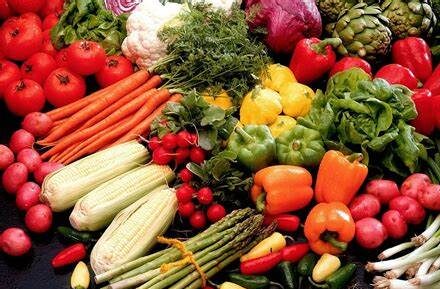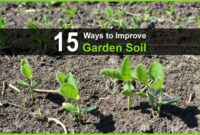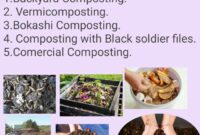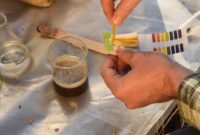Best Vegetables to Grow in Containers – If you’re short on garden space but still want to grow your own vegetables, container gardening is an ideal solution. With the right pots, soil, and care, many vegetables can thrive in containers, whether on a balcony, patio, or windowsill. In this guide, we’ll explore the best vegetables to grow in containers, along with practical tips to help your plants flourish in small spaces.
Table of Contents
ToggleWhy Grow Vegetables in Containers?
Container gardening is an accessible way to grow fresh vegetables without needing a large yard. Growing vegetables in containers offers several benefits:
- Space-Efficient: You can grow a variety of vegetables in a small area, like a balcony or a sunny corner.
- Mobility: Containers are portable, allowing you to move plants to optimize sunlight or protect them from harsh weather.
- Better Soil Control: You can choose high-quality potting mix, reducing the risk of pests and diseases in the soil.
- Extended Growing Seasons: Containers can be moved indoors or to sheltered spots, giving your plants a longer growing season.
Top 8 Vegetables for Container Gardens
Tomatoes
Tomatoes are among the most popular vegetables for container gardening. Varieties like cherry tomatoes and bush tomatoes are especially suited to pots and yield delicious, fresh fruit. Tomatoes need warm temperatures and plenty of sunlight, so make sure to position them in a sunny spot.
- Container Size: At least 12-18 inches deep.
- Growing Tips: Use a tomato cage or stake for support, and water consistently to prevent blossom-end rot.
Peppers
Peppers, both sweet and hot varieties, thrive in containers and produce well throughout the growing season. They require full sun and benefit from warm conditions, making them ideal for sunny patios or balconies.
- Container Size: 10-12 inches deep for most varieties.
- Growing Tips: Water regularly and avoid over-watering. Peppers grow well with minimal pruning.
Carrots
Carrots grow well in deep containers, and shorter varieties like Nantes or Thumbelina are especially suited for pots. Carrots need loose, well-draining soil to allow roots to grow straight and free from obstruction.
- Container Size: At least 12 inches deep for full-sized carrots; smaller containers work for mini varieties.
- Growing Tips: Sow seeds directly in the container and thin out crowded seedlings to give each plant enough room to grow.
Leafy Greens (Lettuce, Spinach, Kale)
Leafy greens like lettuce, spinach, and kale are great for containers, especially because they grow quickly and can be harvested multiple times. They’re also more tolerant of partial shade, so they don’t need as much sunlight as some other vegetables.
- Container Size: 6-8 inches deep for most leafy greens.
- Growing Tips: Sow seeds every few weeks for a continuous supply, and harvest the outer leaves to encourage new growth.
Radishes
Radishes are fast-growing, low-maintenance, and perfect for containers. They’re ready to harvest in just a few weeks, making them ideal for gardeners who want quick results.
- Container Size: 6 inches deep.
- Growing Tips: Radishes prefer cooler weather, so they’re perfect for early spring or fall planting. Thin seedlings to avoid overcrowding.
Green Beans
Green beans, especially bush varieties, grow well in containers and don’t need much space. They produce a high yield over a long period, making them a great choice for small-space gardeners.
- Container Size: 12 inches deep.
- Growing Tips: Place containers where they’ll get full sun, and consider a trellis or support if growing pole beans.
Cucumbers
Cucumbers are another great option, especially compact varieties like bush cucumbers. They grow best in full sun and need a warm environment to thrive. Cucumbers are typically vining plants, so giving them some vertical support can save space.
- Container Size: 12-16 inches deep.
- Growing Tips: Keep the soil consistently moist, and provide a trellis for vines to climb.
Zucchini
Zucchini and other summer squash can be grown in containers, especially compact varieties designed for smaller spaces. These plants are productive and can provide a continuous harvest throughout the summer.
- Container Size: At least 18 inches deep.
- Growing Tips: Plant only one zucchini plant per container, as they need room to spread. Harvest regularly to encourage further production.
Tips for Successful Container Gardening
To ensure a productive vegetable garden in containers, consider these essential tips:
- Choose the Right Container: Each plant has specific needs. Root vegetables like carrots need deep pots, while leafy greens can thrive in shallow containers.
- Use Quality Potting Mix: Avoid garden soil, as it can compact easily. Choose a well-draining potting mix to keep plants healthy.
- Provide Enough Sunlight: Most vegetables need at least 6 hours of direct sunlight. If your space has limited light, focus on shade-tolerant plants like leafy greens.
- Fertilize Regularly: Since containers don’t hold nutrients as well as garden soil, use a balanced fertilizer every few weeks to keep plants strong and productive.
- Keep Soil Moist: Containers dry out faster than ground soil, so check daily, especially in hot weather. Water thoroughly but avoid letting plants sit in soggy soil.
Final Thoughts on Growing Vegetables in Containers
With the right choices and a little care, container gardening can yield an impressive harvest, even in limited space. Whether you’re growing tomatoes on a sunny balcony or lettuce on a windowsill, container gardening makes fresh, homegrown produce accessible to everyone. By choosing the best vegetables for containers and following these simple tips, you’ll be well on your way to enjoying delicious, healthy vegetables right at home.




